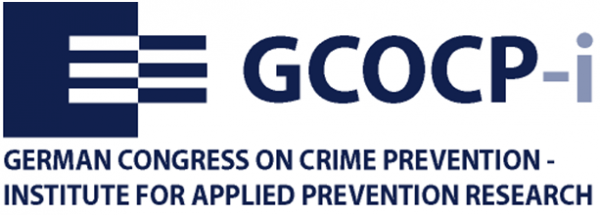Programme
November 8, 2018
►12:30-13:00 ARRIVAL, REGISTRATION AND SNACKS (Foyer)
►13:00-13:30 OPENING AND WELCOME ADDRESS (Auditorium 2)
- Erich Marks, German Congress on Crime Prevention - Institute of Applied Prevention Research (GCOCP-i), Germany
- Joachim Fritz, Deutsche Gesellschaft für Internationale Zusammenarbeit (GIZ) GmbH, Germany
- Catrin Trautmann, German Congress on Crime Prevention-Institute for applied prevention research (GCOCP-i), Germany
►13:30-14:45 PANEL I: What are we talking about? Terms and concepts in an international perspective (Auditorium 2)
VE and PVE are far from having a universally agreed definition; they mean different things to different people. PVE approaches vary significantly from country to country in terms of aims, budget, and underlying philosophy. Understandings of (P)VE are deeply rooted in political, cultural and legal elements unique to that country. The panel wants to introduce the participants to those definitions and approaches falling under the umbrella of PVE and to allow for an international exchange on the theoretical and practical effects.
- Björn Zimprich. Deutsche Gesellschaft für Internationale Zusammenarbeit (GIZ) GmbH, Jordan (Moderation)
- Marie-Christine Roux, Goethe-University in Frankfurt/Main, Germany
- Dr.Daniela Pisoiu, Austrian Institute for International Affairs (OIIP), Austria / Radicalisation Awareness Network (RAN) Editorial Board
►14:45-15:15 BREAK (Foyer)
►15:15-16:30 PANEL II: Sharing experiences – insights into the practice of PVE (Auditorium 2)
Over the last years, PVE activities have been on the rise, not only in Western Countries but also in the Middle East and North Africa. The approaches and experiences have so far been very diverse. What works on the ground and who are the right partners to work with? What are common challenges? The panel wants to introduce the participants to projects and methodological approaches such as violence prevention, capacity-building, interfaith-dialogue, rehabilitation, and disengagement
- Dr. Simone Ullrich. National Center for Crime Prevention (NCCP), Germany (Moderation)
- Ex-combatants: Lessons learned -“Formers” engage in preventing violence and extremism
Christina Foerch, Fighters for Peace, Lebanon - Countering or preventing violent extremism in the UK context: is either truly possible?
Assitant Prof. Tahir Abbas, Leiden University,Netherlands - Dr. Malika Bouziane, Deutsche Gesellschaft für Internationale Zusammenarbeit (GIZ) GmbH, Germany
- (Prevention of violent extremism in South Korea - Current issues and policies
Prof. Dr. In Sup Han, Korean Institute of Criminology (KIC), South Korea)
►16:30-17:00 COFFEE BREAK (Foyer)
►17:00-18:15 PANEL III: How effective are we? – Indicators and evaluation methods (Auditorium 2)
In order to prevent violent extremism, we need to know more about measuring the effectiveness of PVE activities. The panel gives the opportunity to exchange on how to put up a functioning monitoring system for PVE measures. Which indicators are adequate? What could be other benchmarks for preventing violent extremism successfully?
- Renate Kirsch, Deutsche Gesellschaft für Internationale Zusammenarbeit (GIZ) GmbH, Germany (Moderation)
- What is important to keep in mind when starting C/PVE program?
Anum Aftab, Development Alternatives Inc. (DAI), Pakistan - Empirical understanding of the involvement in violent extremism
Dr. Scott Kleinmann, Jane's Aerospace, Defense, and Security, USA - Indicators of Radicalisation as Evaluation Criteria - Challenges and Potentials
- Inga Nehlsen, National Center for Crime Prevention (NCCP), Germany
►18:15-18:30 CLOSING (Auditorium 2)
►18:30 BUFFET and POSTER PRESENTATION (Foyer)
November 9, 2018
►09:00-09:30 ARRIVAL
►09:30-11:00 WORKSHOPS
The workshops facilitate an in-depth exchange of knowledge, new findings and approaches on PVE for all participants. The allocation to the workshops will take place at the first day of the conference.
- PVE and local authorities - Needs, competencies, services and support (Auditorium 2)
Anna Rau (German-European Forum for Urban Security - DEFUS, Germany) with a short impulse lecture by Janusz Biene (PRO Prävention, Germany).
There is increasing recognition among policy makers on national and international levels that the prevention of radicalisation and violent extremism must be rooted locally. Whether with regards to building resilience among youngsters or supporting communities, reintegrating formers or developing alternative narratives : local authorities are well placed and must be considered key contributors to preventative strategies and initiatives.
But how to go about preventing violent radicalisation in our cities and regions? How to plan and implement actions at the local level, how to win the support of a variety of stakeholders and involve them in a multi-agency strategy? Which programs and methodologies have been proven successful? What support is needed from other levels of governance?
This workshop offers a space for discussions for everyone interested in promoting local prevention approaches. Among the contributors are experienced local prevention experts who will share insights from their running programs. - How to prevent recidivism and radicalisation in prison, probation and release? (will be announced)
Moritz Konradi (European Forum for Urban Security - Efus, France) with short impulse lectures by Maarten van de Donk (Radicalisation Awareness Network - RAN, The Netherlands) and Boujemaa Tajjiou (Violence Prevention Network - VPN, Germany).
Policy-makers across Europe are increasingly interested in the role of prisons and probation services with regards to preventing radicalisation as well as the disengagement and rehabilitation of radicalised individuals. While prisons have oftentimes been considered to be “breeding grounds” for radicalisation, they can, together with probation services, also be effective partners for prevention. How should successful measures to rehabilitate and resocialise detainees be designed? What role can prisons, probation services, local authorities and civil society play in these endeavors?The workshop will tackle the issue from the European as well as local perspectives. - The Role of Religion in PVE- Potentials and Challenges (will be announced)
Dr. Malika Bouziane (SP Values, Religion and Development) with short input on the iDove Project by Mustafa Tayib and Omar Malbous.
More than 80 percent of the world population identifies itself as religious. Indeed, religious values and beliefs influence the thoughts and behavior of billions of people. Thus, religious actors play a significant role in their communities and have networks reaching into the most remote corners of the world. Today, as governments and societies are increasingly grappling with violent extremism and its repercussions, the role of religious leaders, narratives, and institutions is critical to preventing violent extremism. Religious actors can significantly contribute to strengthening the resilience of local communities and the youth. The workshop will offer participants the opportunity to discuss how international cooperation and practitioners can work with faith leaders and institutions in the field of PVE. At the same time it will highlights the ambiguity, which is lying in within Religion. What are the potentials, the challenges and pitfalls of working with Religious Actors regarding PVE? How could practical contributions look like? Which practical approaches work best? What are some of the wide-ranging characteristics related to religion and religious identity that both drive and prevent violent extremism?
►11:00-11:30 BREAK (Foyer)
►11:30 -12:15 PRESENTATIONS (Auditorium 2) of the results of the workshops
►12:15-12:45 CLOSING (Auditorium 2)
- Erich Marks, German Congress on Crime Prevention - Institute of Applied Prevention Research (GCOCP-i), Germany
- Joachim Fritz, Deutsche Gesellschaft für Internationale Zusammenarbeit (GIZ) GmbH, Germany
►12:45-15:00 INFORMAL DIALOGUES (Auditorium 2 or Foyer)
The dialogues provide an opportunity for informal exchange among the participants. You can get in contact with an international audience and use the conference for network meetings. (snacks provided)






